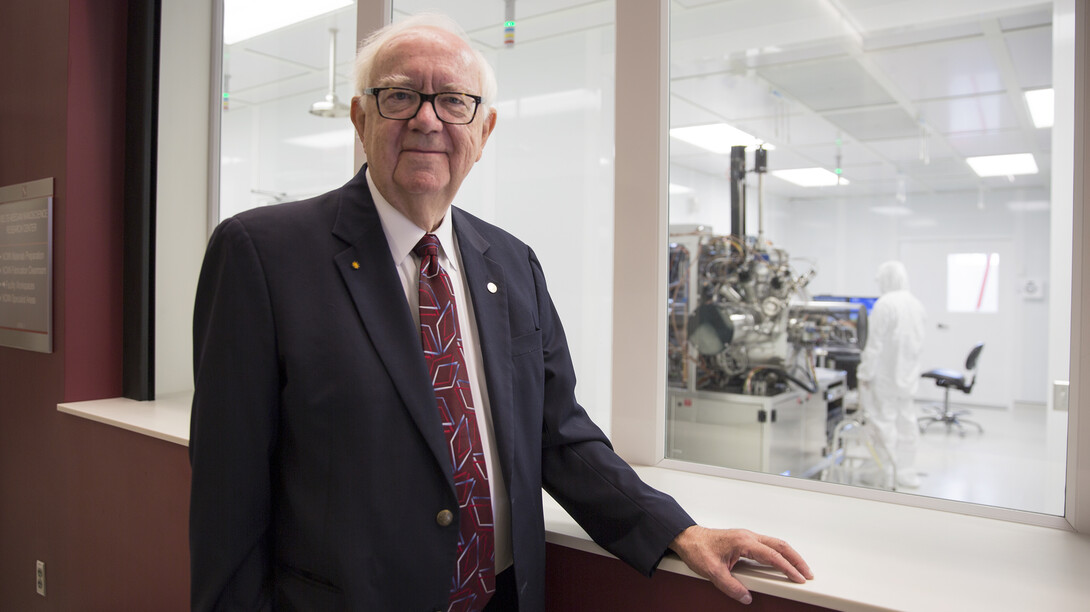
The University of Nebraska-Lincoln has earned a nearly $3.5 million grant from the National Science Foundation to establish a regional center of excellence in nanoscience and nanotechnology.
The Nebraska Nanoscale Facility builds on UNL’s highly regarded reputation in nanoscience research. It will be one of 16 centers created under the NSF’s National Nanotechnology Coordinated Infrastructure, designed to advance the nation’s nanoscience research by expanding the equipment and service capabilities of universities and industries. UNL’s five-year grant is for $3,494,096.
“There is a need for regional facilities,” said David Sellmyer, George Holmes university professor of physics, who will direct the new facility. “Most universities do not have the resources to buy these very expensive pieces of machinery. Our regional center will operate and maintain this complex equipment to help not only UNL’s researchers, but also our neighboring universities, companies and others.”
The facility builds on and strengthens the Nebraska Center for Materials and Nanoscience, established in 1988 to support UNL’s research and education in nanoscale materials for magnetic and information technologies, electronics and sensors, energy systems and sustainable manufacturing. The center, which Sellmyer directs, provides shared laboratory facilities and specialized equipment, principally housed in UNL’s Voelte-Keegan Nanoscience Research Center. The new regional center will use these facilities.
While UNL researchers have benefitted from these resources, making significant contributions to nanotechnology advancements, the university has had limited capacity to serve researchers and industries beyond UNL, Sellmyer said.
“We are well set up to do a lot of things now. What we hope to do is make our instrumentation more available,” he said. “With a larger scientific staff, we will be able to do a better job at helping companies in Nebraska and neighboring states with their technical problems.”
Bolstering nanoscience through the new Nebraska Nanoscale Facility will contribute to economic development throughout the western Midwest region. Nanoscience research has contributed to technological advances, such as improving computing power and other electronics, environmental sensors, medical devices, solar and wind energy as well as national defense, he said.
The facility will hire additional personnel and purchase new equipment, allowing hundreds of students, postdoctoral research associates and visiting scientists and engineers to benefit from UNL’s state-of-the-art facilities. Increasing interactions also will strengthen regional and national research collaborations.
The facility reinforces UNL’s ongoing nanoresearch programs and centers, including the NSF-funded Materials Research Science and Engineering Center; the Center for Nanoferroic Devices, funded by the Semiconductor Research Corporation and the National Institute of Standards and Technology; the NSF-funded Center for Nanohybrid Materials; and others.
The award also strengthens UNL’s education and outreach to the next generation of engineers and scientists. Facility faculty and staff will continue developing school programs and hosting high school students for summer research programs. In addition, they will pursue educational opportunities for Native Americans and tribal colleges within Nebraska.
Physicist Christian Binek will be the facility’s associate director, Terese Janovec the education and outreach coordinator and Shelli Krupicka the administrative coordinator.







